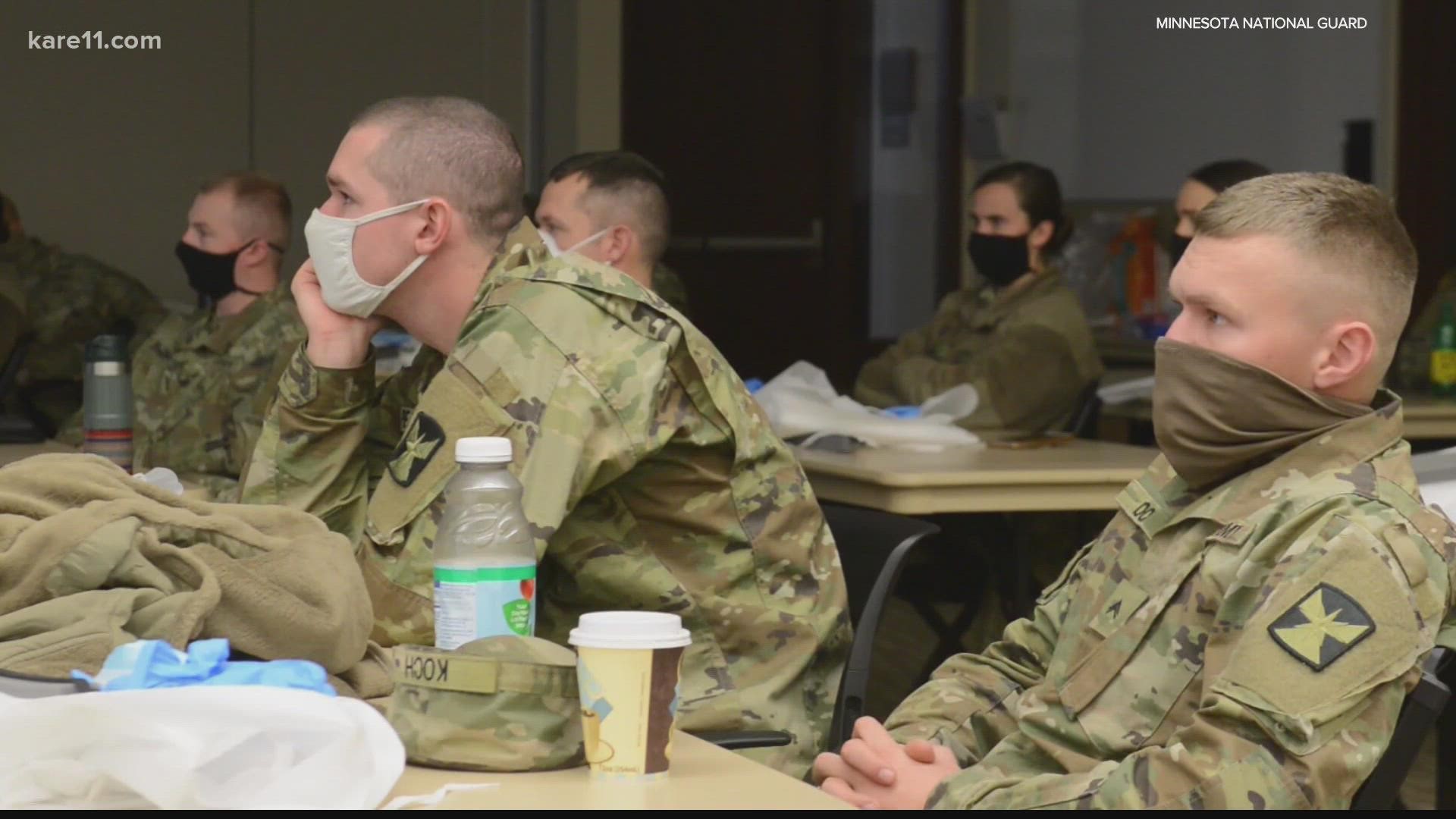ST PAUL, Minn. — Seeking to ease the strain COVID-19 is placing on long-term care facilities across the state, Gov. Tim Walz is activating the Minnesota National Guard to help facilities experiencing struggles and shortages with staff.
Walz announced Monday that the Guard will form skilled nursing response teams that will be deployed in long-term care centers that don't have enough workers to deal with the patient load.
"Any time that we have support from the state or federal government is extremely valuable," said Rochelle Rindels, the Vice President of Nursing and Clinical Services for the Good Samaritan Society. "They’re recognizing the service that we provide to our elderly citizens and to our residents."
Rindels supports nurses at more than 300 Good Samaritan Society senior care locations. The organization is offering its nurses a bonus, PTO flexibility and paid health premiums as a record number of health care workers quit across the country.
"They're the ones in the trenches every day and we need them and they're extremely valuable to us and we want to show that to them," said Rindels.
Initially, 400 National Guard members will start training as certified nursing assistants and temporary nursing aides over the next seven days. Skilled-nursing facilities that face severe staffing shortfalls can request assistance from the Minnesota Department of Health (MDH) and selected facilities will receive a National Guard team to provide on-site staffing support for up to three weeks at a time.
The governor is also seeking to use $50 million in American Rescue Plan funding to help those facilities hire and retain care staff.
“Our long-term care facilities are facing an all-hands-on-deck moment, and that’s why we are taking unprecedented action to support skilled nursing workers, residents, and patients,” said Walz in a released statement. “Financial support will help our skilled nursing facilities hire and retain talented staff to care for patients, and the Minnesota National Guard is preparing to fill any staffing gaps."
State health officials say more than 22,000 elderly and vulnerable Minnesotans currently receive care at roughly 365 skilled-nursing facilities across the state. Those facilities also provide post-acute care and rehabilitation therapy to individuals who do not need hospital-level treatment, but are currently taking up hospital beds as there are no openings at lower level facilities. The Walz administration hopes increasing staffing at long-term care centers will ease the burden hospitals are currently carrying.
Additional help arrives this week on another front: Emergency federal medical teams are en route to Minnesota to relieve staff at Hennepin County Medical Center (HCMC) and St. Cloud Hospital after the state requested help.
“This latest COVID-19 surge is a challenge for everyone, and it is especially difficult for long-term care providers who have been on the front lines of this pandemic for nearly two years,” said Minnesota Department of Health Commissioner Jan Malcolm. “These actions provide vital support for this workforce at a time of need."
Malcolm added that all Minnesotans can also play a role in easing the burden on providers by reducing the spread of COVID-10 through getting vaccinated, masking and other measures.
Guard members are currently deployed at alternative care facilities in Shakopee, Brainerd, and Saint Paul, helping to provide transitional care to patients who no longer need to be hospitalized, opening beds up for hospitals to treat those sick with COVID-19 and others requiring emergency support.

